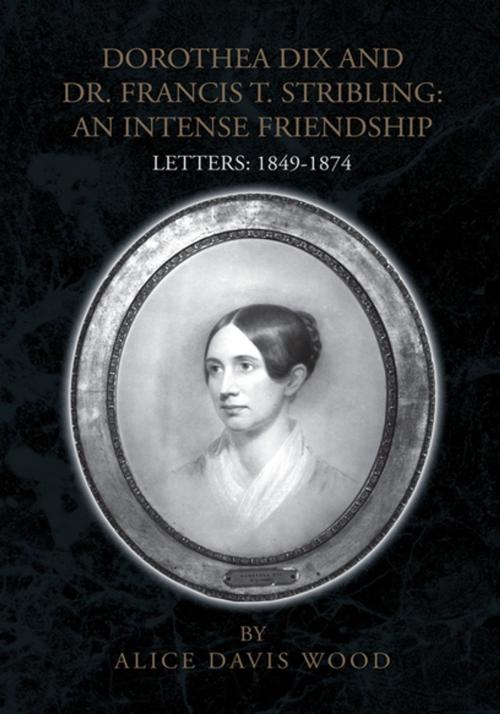Dorothea Dix and Dr. Francis T. Stribling: an Intense Friendship
Letters: 1849-1874
Nonfiction, Family & Relationships, Relationships, Friendship| Author: | Alice Davis Wood | ISBN: | 9781462841158 |
| Publisher: | Xlibris US | Publication: | October 21, 2008 |
| Imprint: | Xlibris US | Language: | English |
| Author: | Alice Davis Wood |
| ISBN: | 9781462841158 |
| Publisher: | Xlibris US |
| Publication: | October 21, 2008 |
| Imprint: | Xlibris US |
| Language: | English |
This is primarily the story of the long-time friendship between Dorothea Dix and Dr. Stribling as told by them in their unedited letters. The letters are preceded by summaries of their life experiences at the time their friendship began. Dix was the most politically active and well-traveled woman her time. She enlarged or founded thirty-two mental hospitals in fifteen states, and other countries, fifteen schools for the feeble-minded, a school for the blind, and several training schools for nurses. Dix successfully petitioned Congress to create the Government Hospital for the Insane in Washington, D. C. Dix petitioned Congress in 1854 to sell twelve million acres of public land whose proceeds would befit the insane, blind and paupers throughout the nation. After it was passed by Congress but then vetoed by Congress, a devastated Dix, too ill to work, traveled to England to recuperate. By the late 60s Western State and similar institutions were filled with incurable patients, leaving little room for those who could be cured. By 1871, only eight of Striblings patients were expected to be cured, twenty-six others were doubtful, and the remaining three hundred and six patients were decidedly unfavorable. The situation was depressing for Stribling, his staff and the caretakers who constantly drew on their skills, energies, and goodness of heart to soothe patients' depressed spirits and replace their delusions with pleasant thoughts. It would have been far easier to restore curable patients who would be in the hospital only for the brief duration of their illness. Stribling died in 1974. Because of his crusade to cure the insane in the South, he had been one of the most influential Virginians of his time. Dix continued her crusade until the Civil war when she became head of the Union nurses. Afterwards she resumed her efforts to help those who could not help themselves. Dix died on July 17, 1887 at the New Jersey State Hospital at Trenton.
This is primarily the story of the long-time friendship between Dorothea Dix and Dr. Stribling as told by them in their unedited letters. The letters are preceded by summaries of their life experiences at the time their friendship began. Dix was the most politically active and well-traveled woman her time. She enlarged or founded thirty-two mental hospitals in fifteen states, and other countries, fifteen schools for the feeble-minded, a school for the blind, and several training schools for nurses. Dix successfully petitioned Congress to create the Government Hospital for the Insane in Washington, D. C. Dix petitioned Congress in 1854 to sell twelve million acres of public land whose proceeds would befit the insane, blind and paupers throughout the nation. After it was passed by Congress but then vetoed by Congress, a devastated Dix, too ill to work, traveled to England to recuperate. By the late 60s Western State and similar institutions were filled with incurable patients, leaving little room for those who could be cured. By 1871, only eight of Striblings patients were expected to be cured, twenty-six others were doubtful, and the remaining three hundred and six patients were decidedly unfavorable. The situation was depressing for Stribling, his staff and the caretakers who constantly drew on their skills, energies, and goodness of heart to soothe patients' depressed spirits and replace their delusions with pleasant thoughts. It would have been far easier to restore curable patients who would be in the hospital only for the brief duration of their illness. Stribling died in 1974. Because of his crusade to cure the insane in the South, he had been one of the most influential Virginians of his time. Dix continued her crusade until the Civil war when she became head of the Union nurses. Afterwards she resumed her efforts to help those who could not help themselves. Dix died on July 17, 1887 at the New Jersey State Hospital at Trenton.















